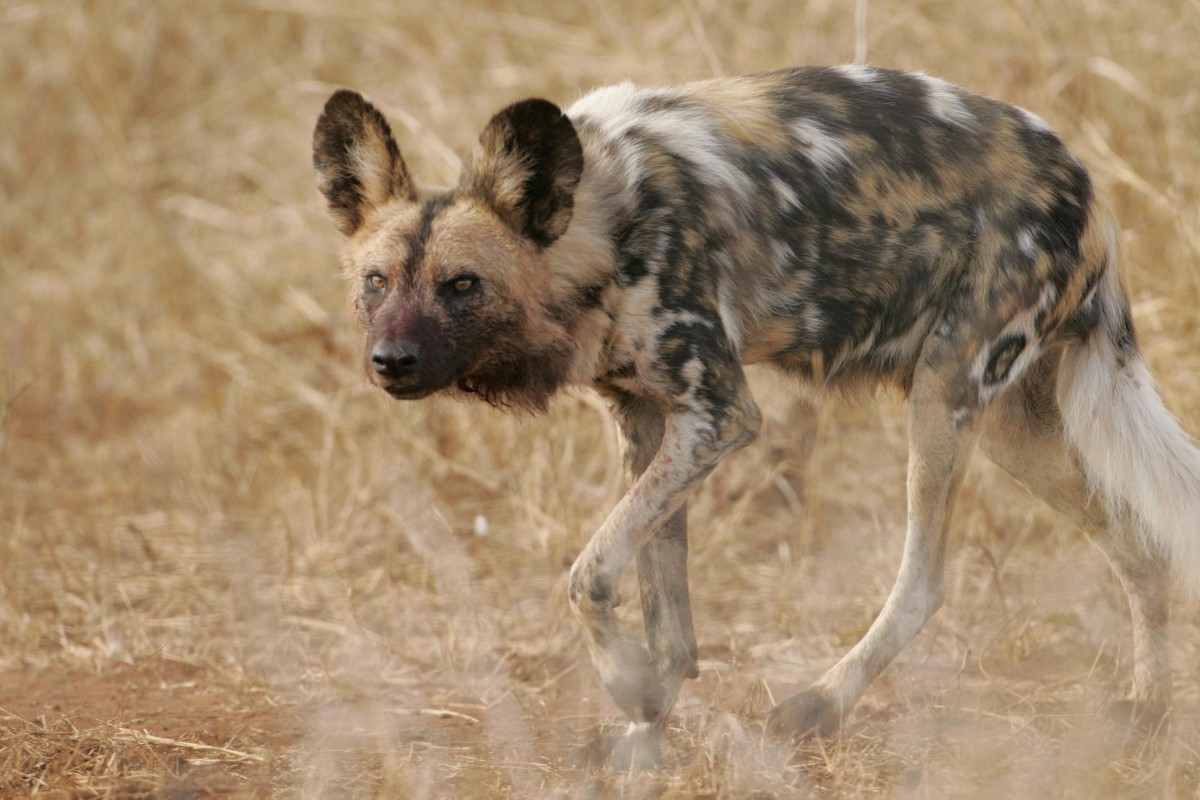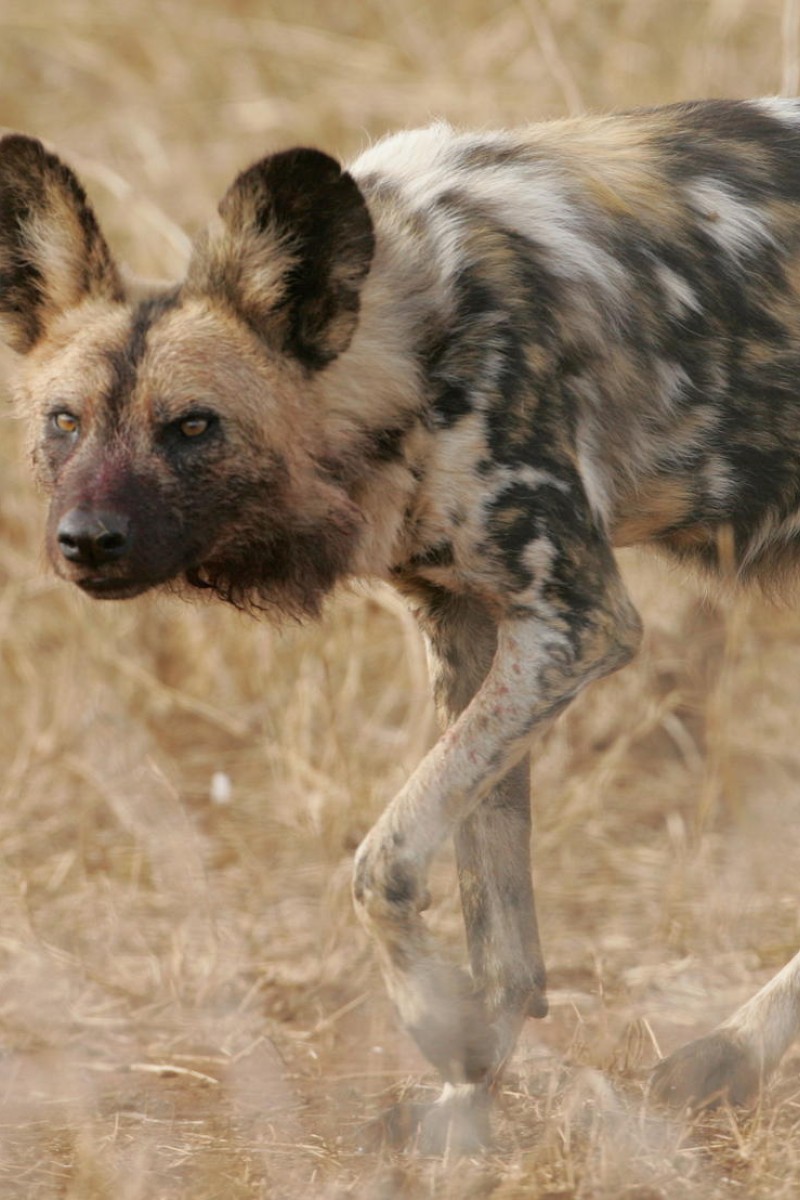
Roaring lions, wild rhinos and parades of elephants were the sorts of animals volunteers from the University of Science and Technology expected to protect when they ventured to the wild veldt of South Africa last year.
But they were surprised to learn of one species close to extinction - wild dogs.
To investigate this little-known problem, Young Post headed to Zimanga Private Game Reserve in KwaZulu-Natal to find out more.
The park is privately owned and co-managed by environmental group Wildlife ACT. Sprawling across 58 sq km, the park is home to many species, including zebra, giraffe, impala, warthog and rhino. There are also 13 strong, wild dogs.
Wild dogs are identified by their yellow spots over a black undercoat. These carnivores are extremely sociable, hanging out in gangs of up to 50 individuals, and their favourite food is impala.
So why are they becoming extinct?
Wild dogs used to be common across Africa, but now experts believe only between 3,000 to 5,000 are still alive - making them the most endangered mammal in Africa.
Those that survive are now mainly seen in South Africa.
Ranger Coenraad Botha says it is neither their fur nor their meat that the wild dogs are being killed for.
The biggest threat to these animals, Botha explains, is their shrinking habitat due to human expansion in the area over recent years.
But another factor also comes into play, which makes the situation a lot more serious - the wild dog's unique living requirements. Botha says: "Wild dogs are extremely territorial. They need a very large space so they can roam about. In some game reserves, they will go under the fences and sneak outside. And when they're out in the community, that's when they face danger."
In South Africa, game reserves are set up by the government and business owners to offer animals shelter, while giving visitors a chance to get close to them. But because of the free-roaming nature of the dogs, Botha says, they are harder to protect than other endangered species.
One of his jobs at Zimanga is to track the 13 wild dogs every day, and see what they get up to. Although there is no way to keep them from leaving the area, close monitoring is still important.
Once they're out in the human world - the wider world - it is then up to Wildlife ACT Fund Community
Continued on page 3
Continued from page 1
Outreach Conservation Project's leader Wishwell Mabuya to keep them safe.
Mabuya says educating the community is the best way to do this and he runs classes and summer camps for local Grade Six students. He says the main reason wild dogs are being killed is a lack of understanding.
"Some locals see them as evil, like the hyenas," says Mabuya. "In this region, in particular, people don't know wild dogs are endangered.
"[In the programme], we teach kids about the endangered species in the area, by showing all the powerpoints.
"Now, if you ask the kids what are the endangered species, they can tell you about the rhino, cheetah and wild dogs."
Mabuya says many wild dogs are killed because the locals believe they bring bad luck. To catch them, they use a method called snaring, which involves setting up a rope to strangle an animal. The animals either choke to death or lose their mobility, which makes them susceptible to predators.
Worse still, locals usually place a few snaring traps at one site. This is bad news for the dogs as they travel in groups. One dog rarely goes on its own.
Mabuya says now the kids know the right message, they can take it home and tell their parents not to set up snare traps.
"We try to discourage this practice within the community, and sometimes we will take the students with us to have a little look around," Mabuya adds.
"They can tell us if their aunt had used or put up some snares. Then we're able to go to that person and talk to them," he says.
"We tell them this species is indeed endangered. Also, when they see wild dogs roaming around their community, they can report them to us."
Started in 2011, the programme is already a success, Mabuya says.
When he began, most parents wouldn't even allow him to take their kids into game reserves, as they thought it was dangerous.
But now schools invite the team to come and talk to students.
Mabuya seems to have a bigger ambition than that.
"I hope one day, when you ask them, the kids will say: 'I want to be an environmentalist or a ranger'."
Only time will tell.
Young Post travelled to South Africa courtesy of Panda Safari and South African Airways.
